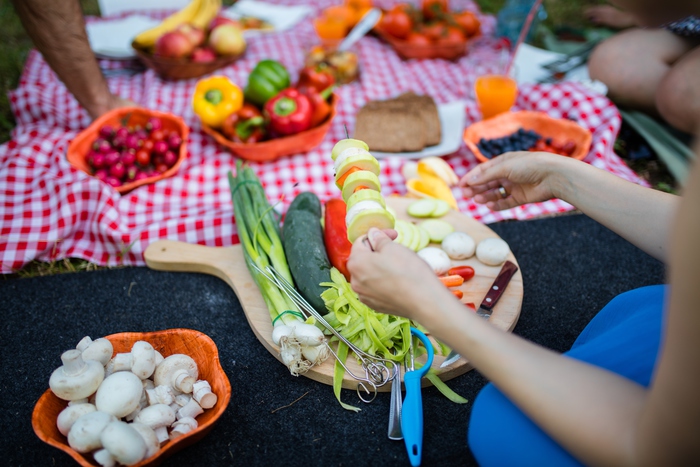What will we like to cook more? What kind of ingredients will be privileged? What will be the main culinary choices? Also this year the research conducted by Lightspeed / Mintel in collaboration with Thermomix on consumer choices and behaviors in the European food base area (France, Germany, Italy, Spain and Poland), on food choices that will be protagonists in 2020, is talking about trends. Interesting trends emerge: above all consumers' awareness of the impact of their food choices on the world around them, the greater sensitivity regarding the emergency produced by climate change, combined with the belief that a change in our habits must take place now. Respondents are fully committed to the guidelines on 'sustainable diets' indicated by FAO.
1. Increasingly aware nutrition In line with the most recent studies, research shows that most European citizens are concerned about how and where the food that arrives on their tables is produced and how this can affect their health and on that of the planet. That's why the quality of food is put at the first post o: in particular 35% of Italians show interest in more sustainable ingredients, with a view to respecting the environment, the workforce and health. Respondents say they are willing to accept even a higher price for ingredients that guarantee these values. There is also a real tendency to combat food waste to which all consumers can contribute with small daily gestures: optimize the use of energy, reduce the impact of packaging by cooking dishes at home rather than buying them ready, making sure of their origin of the ingredients, choose them seasonal and in general diversify their use to prevent them from being intensively produced.
2 . Food as a sharing tool Europeans all agree: eating together rather than alone is good for you! Sharing a meal with family or friends is a real cure-all: food, in fact, is an important part of our culture and its ritual value leads us to share the special moments of life around a table. In particular, if you look at Italy.
3. New nutritional knowledge: the balance of a healthy and balanced diet If in 1980 good nutrition was synonymous with diets and calorie counting, today the situation is decidedly different. People favor a holistic approach to nutrition, they think about prevention , healthy aging, sustainability and food habits are increasingly personalized. In Europe, consumers are interested in the health benefits of various foods, such as improving sleep, reducing anxiety and helping relaxation. In Italy, for example, 35% of consumers interviewed research food for hair and skin health. And over 60% of respondents at European level are aware that what they eat has a direct impact on their well-being not only physically, but also mentally and emotionally. In 2020, the search for a balanced diet with attention to our physical and emotional mental health became a primary target of Europeans and between 38% and 43% of respondents declared themselves open to a radical lifestyle change. Probiotics, yogurt, fermented drinks and the search for all the possibilities offered by the different culinary cultures with kefir, kombucha and other fermented products, capture the interest especially of consumers under 35 .
4. Towards a plant-based diet Aware and interested in the issue of animal welfare and the sustainability of farms, Europeans of all ages are increasingly inclined to change their eating habits in favor of a mainly plant-based diet. In Europe, in fact, between 37% and 52% of consumers surveyed avoid eating meat for environmental reasons and around 40% believe that the proteins deriving from plants are healthier than those from animals. Hence the increasingly present tendency to eliminate lactose : in particular in Italy 13% of respondents5 do not include it in their diet. Consumption of milk and dairy products, replaced by plant-based foods, is decreasing more generally: among those who avoid them we find 11% of Italians. If not everyone is ready to become a vegetarian or vegan, even meat lovers are recognizing the need for a more reduced and conscious consumption . In fact, a new flexiterian food trend has recently developed, which provides for the consumption of meat (especially red) only in small quantities - for example only once a week - to the extent sufficient and necessary for the acquisition of those nutrients otherwise difficult to find with a 100% veg food. It is a fact that between 42% and 60% of Europeans interviewed want to stick to meat consumption only once a week and that between 32% and 59% are trying to replace animal proteins with vegetable ones.
Nutrition, the trend is increasingly towards sustainable diets - Lifestyle
2020-02-22T23:32:52.303Z

(HANDLE)



